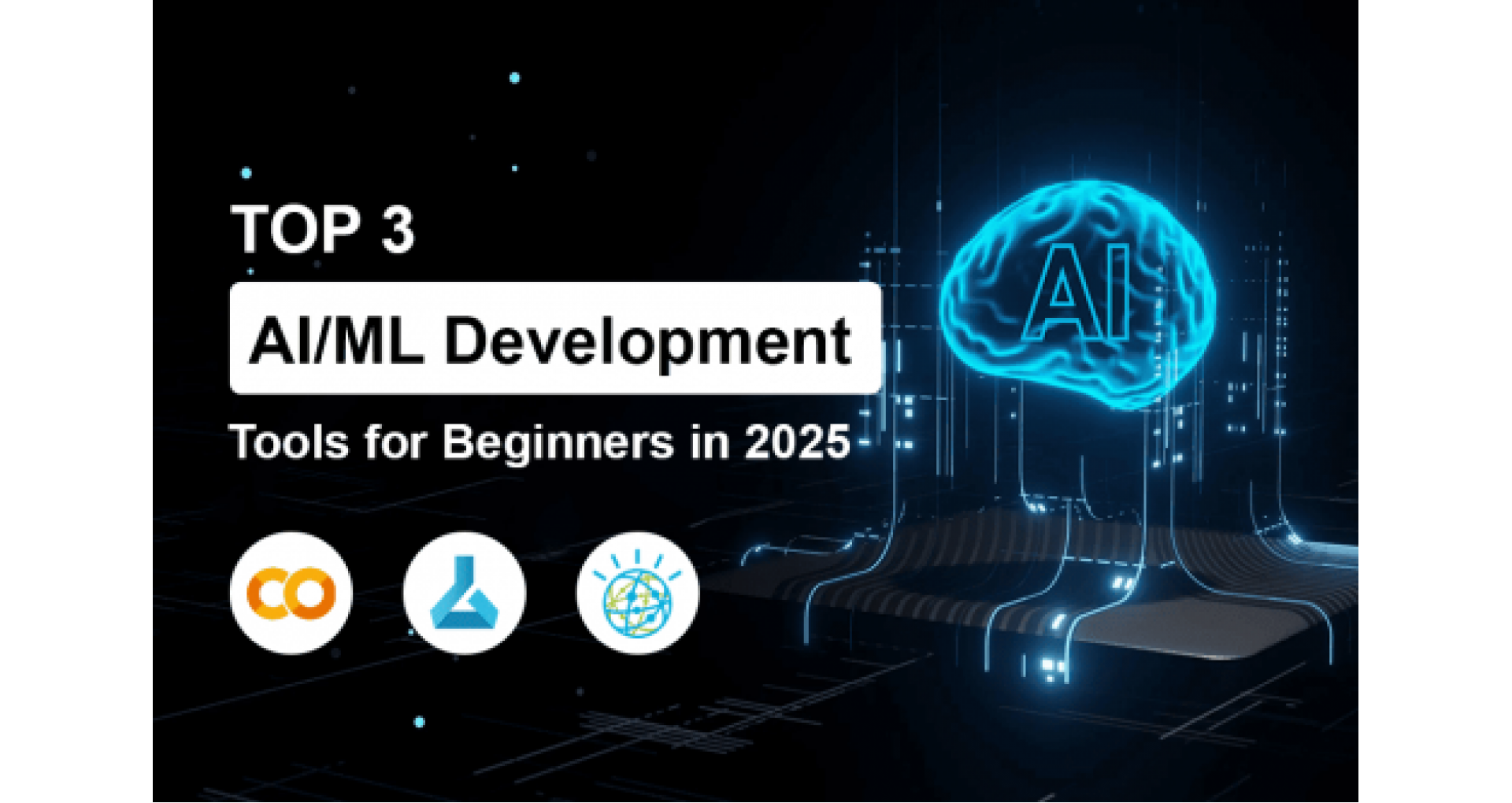
Top 3 AI/ML Development Tools for Beginners in 2025
Artificial Intelligence (AI) and Machine Learning (ML) are transforming industries in 2025, from healthcare to finance and beyond. For beginners, choosing the right development tools can make the learning process smoother and more enjoyable. The ideal AI/ML tool should be user-friendly, well-documented, and supportive of experimentation.
In this blog, we’ll explore the top three AI/ML development tools for beginners in 2025, highlighting their features, pros and cons, and best use cases.
What to Look for in an AI/ML Tool for Beginners
Before diving into the tools, here’s what beginners should consider:
-
Ease of Use – A low learning curve is essential.
-
Community & Documentation – Strong support helps troubleshoot issues.
-
Integration Capabilities – Compatibility with other tools and platforms.
-
Cost & Accessibility – Free tiers or affordable options are ideal for learners.
1. Google Colab
Overview of Google Colab
Google Colab is a free, cloud-based Jupyter notebook environment that allows beginners to write and execute Python code for AI/ML without complex setups.
Key Features
-
Cloud-based Jupyter notebooks – No installation needed.
-
Free GPU/TPU access – Accelerates model training.
-
Seamless Google Drive integration – Easy file management.
Pros and Cons for Beginners
-
Pros: Completely free, beginner-friendly, no setup required.
-
Cons: Limited GPU hours on the free tier, requires internet access.
Ideal Use Cases
-
Learning Python for AI/ML
-
Running small to medium ML experiments
-
Collaborating on projects with peers
2. Microsoft Azure Machine Learning Studio
Overview of Azure ML Studio
Microsoft’s Azure ML Studio is a drag-and-drop platform that simplifies AI/ML model development, making it great for beginners with minimal coding experience.
Key Features
-
Drag-and-drop interface – Build models visually.
-
Prebuilt models & datasets – Jumpstart learning.
-
Automated ML (AutoML) – Simplifies model selection and training.
Pros and Cons for Beginners
-
Pros: No-code/low-code options, enterprise-grade scalability.
-
Cons: Free tier has limitations; some features require Azure credits.
Ideal Use Cases
-
Rapid prototyping without deep coding
-
Deploying models in a cloud environment
-
Learning AutoML concepts
3. IBM Watson Studio
Overview of IBM Watson Studio
IBM Watson Studio provides a robust environment for AI/ML development, combining visual tools with Jupyter notebooks for flexibility.
Key Features
-
Visual modeling tools – Great for beginners.
-
Integrated Jupyter & RStudio – Supports multiple coding languages.
-
Deployment & monitoring – Helps track model performance.
Pros and Cons for Beginners
-
Pros: Strong enterprise features, good documentation.
-
Cons: Steeper learning curve than Colab, limited free tier.
Ideal Use Cases
-
Building end-to-end AI projects
-
Learning model deployment
-
Working with structured and unstructured data
Tips for Beginners Getting Started with AI/ML
-
Start small – Focus on basic projects before complex models.
-
Join communities – Reddit, Kaggle, and Discord groups help.
-
Leverage free courses – Coursera, Udemy, and Fast.ai offer great tutorials.
Conclusion
Picking the right AI/ML tool as a beginner can accelerate your learning. Google Colab, Azure ML Studio, and IBM Watson Studio are all excellent choices, depending on your goals. Start experimenting, join AI communities, AI/ML Course and keep learning—2025 is a great year to dive into AI/ML!